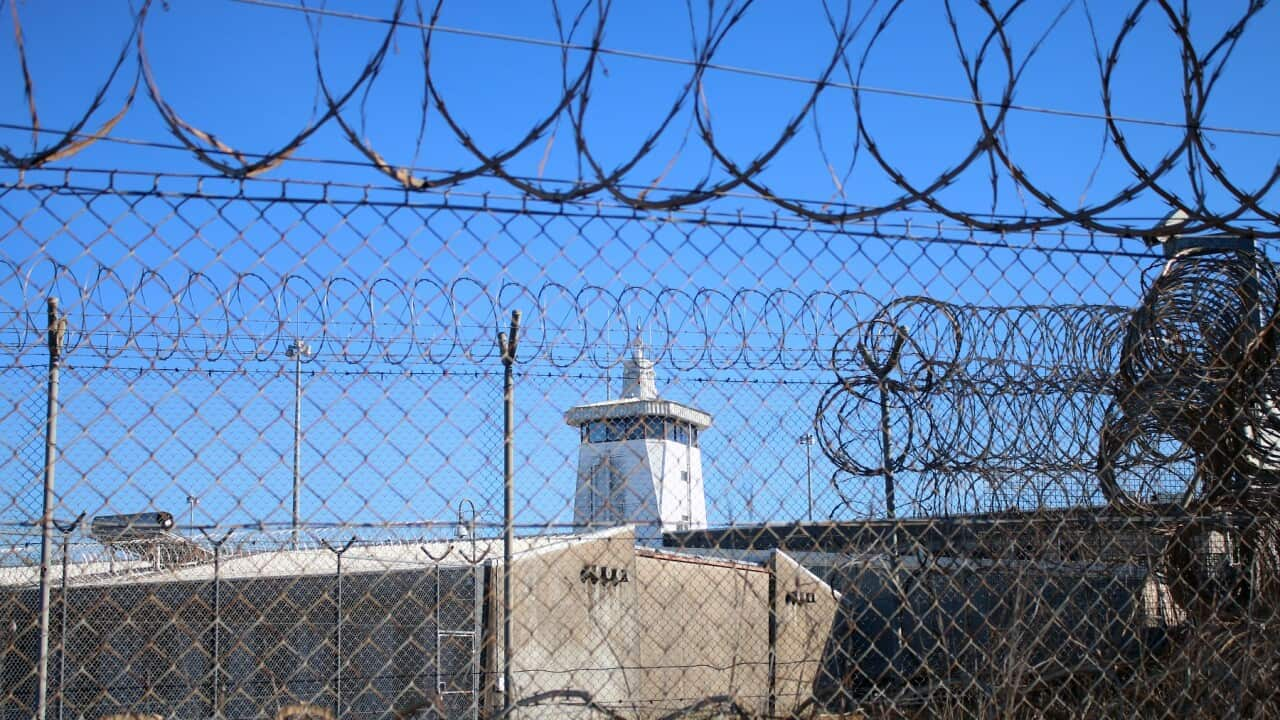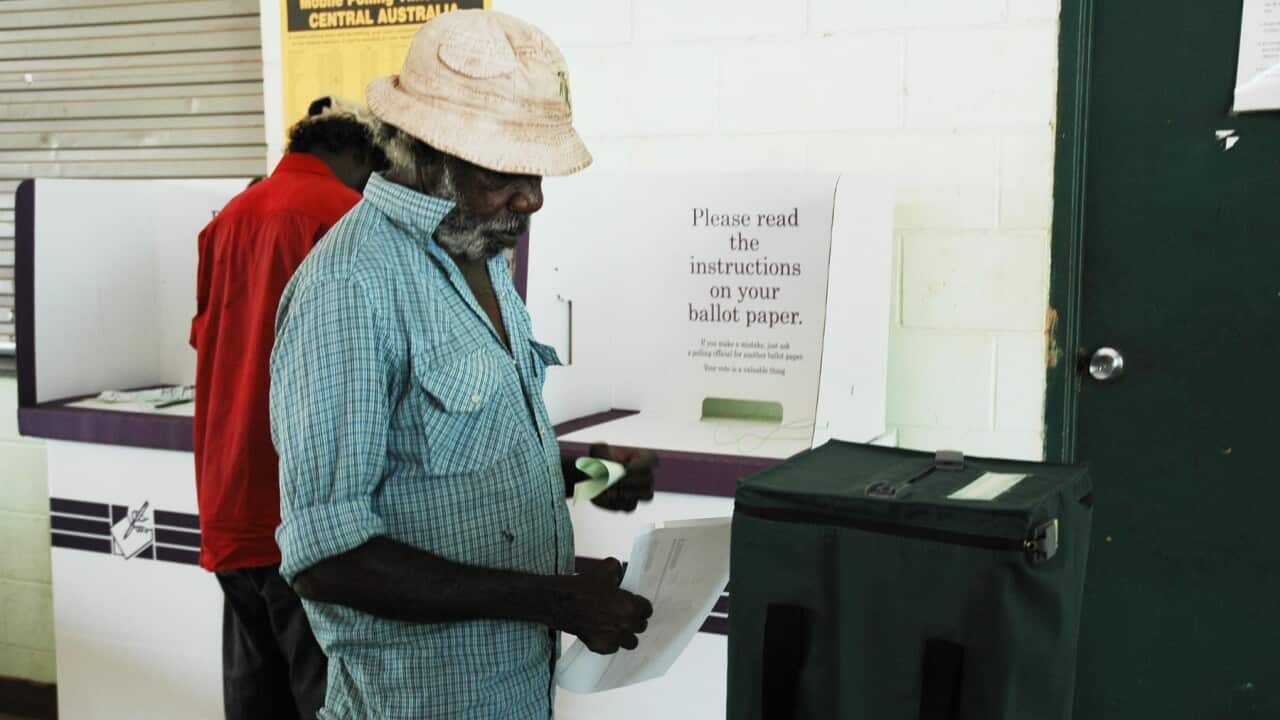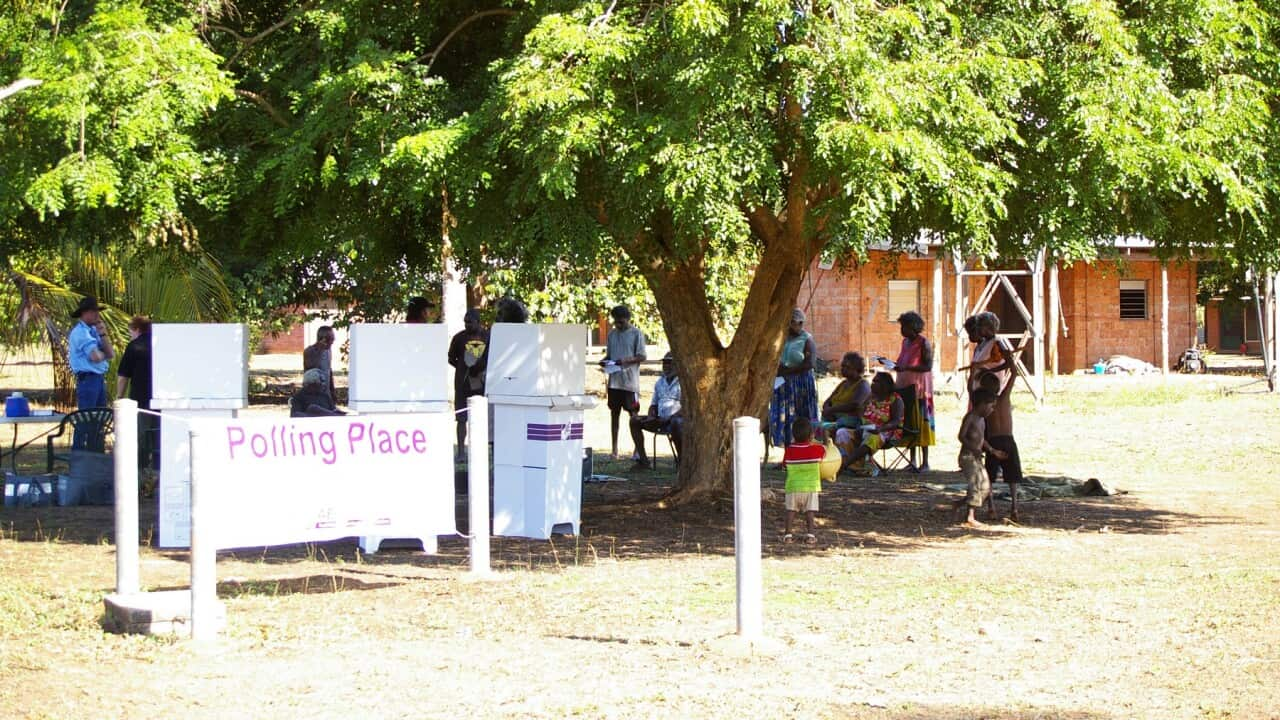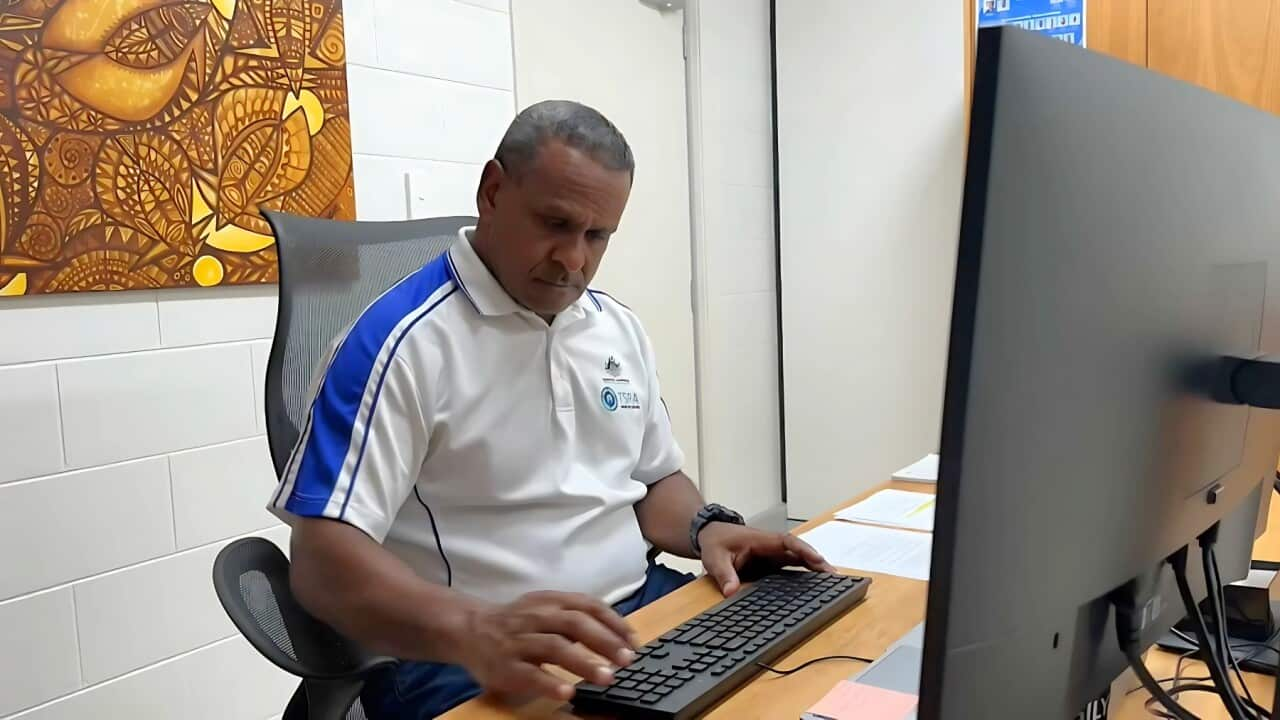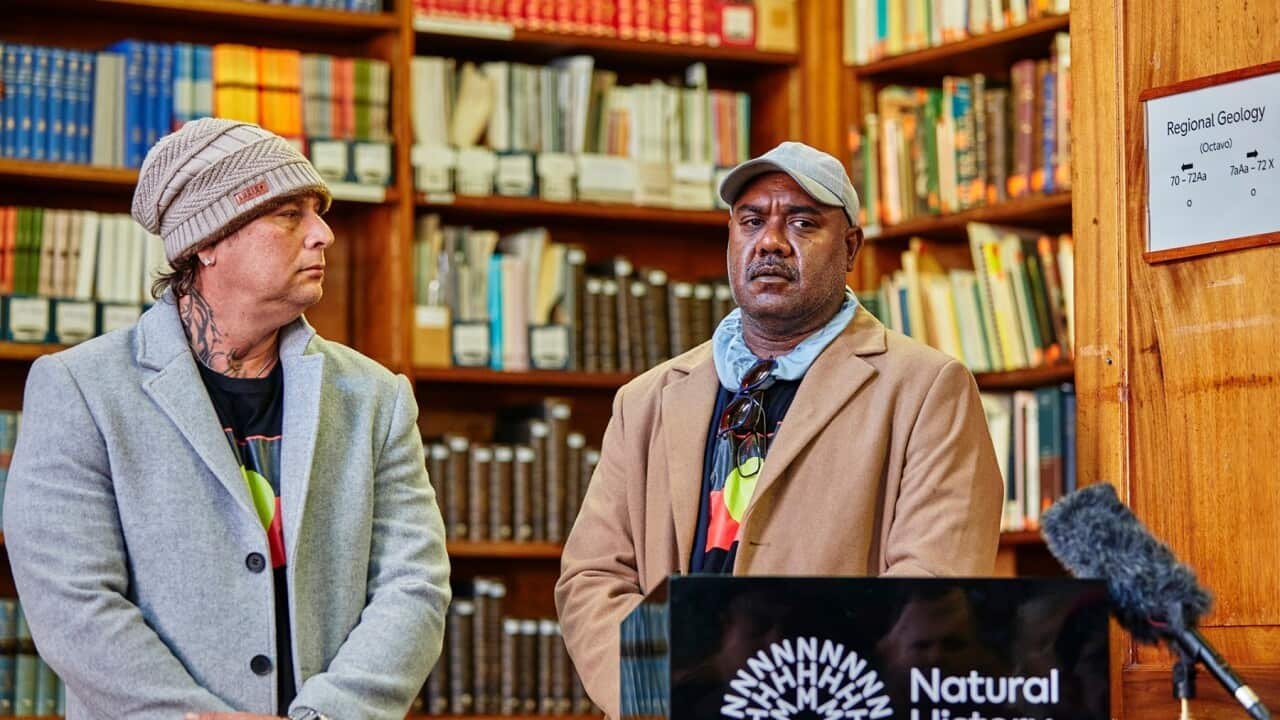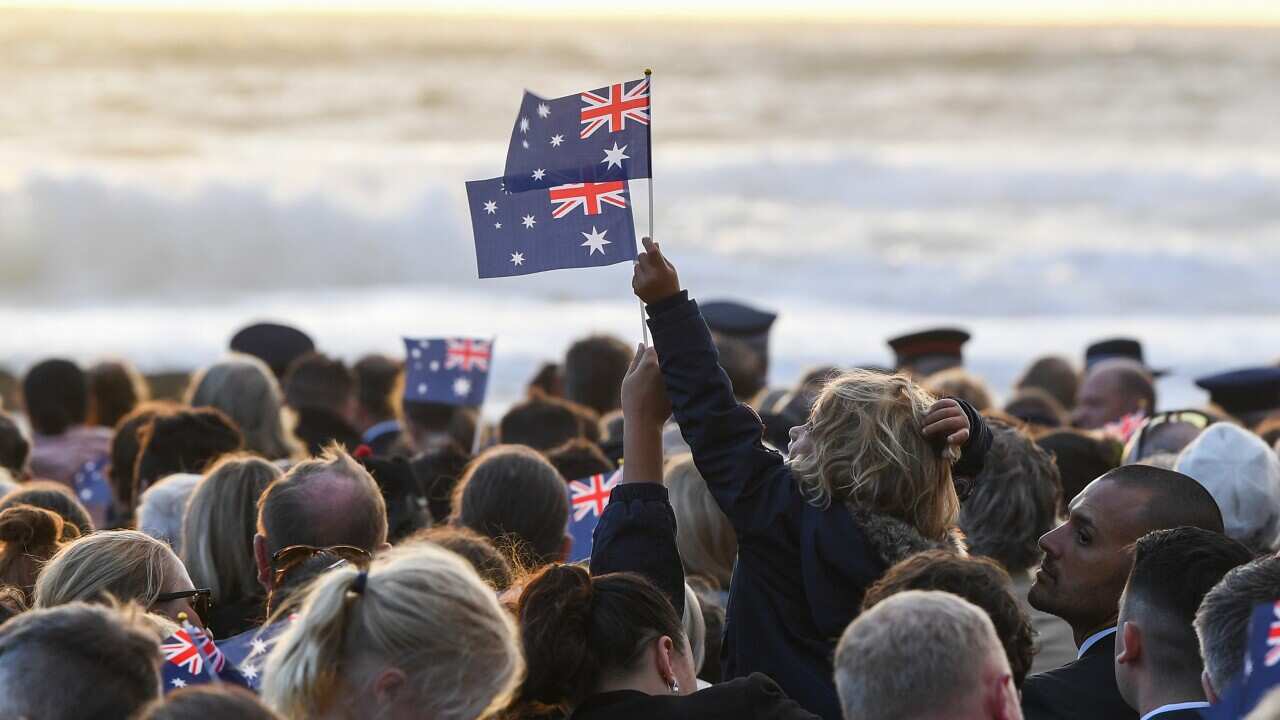TRANSCRIPT
In 2016, the ABC's Four Corners program broadcast footage that sparked a Royal Commission and national outrage: a child being tear-gassed in Don Dale Detention Centre in the Northern Territory.
But how much have Australia's youth justice and detention systems changed in the nine years since then?
Not enough, say advocates.
"Those practices (are) still absolutely still going on. We all remember and were horrified by Don Dale, which was nearly 10 years ago now. Unfortunately, any changes based on Don Dale and other media reports of conditions in other states and territories have been really short-lived. There's been no meaningful reform and, in fact, regression."
That’s Rachana Rajan, from the Human Rights Law Centre, which is supporting a complaint to the United Nations brought by international human rights law expert Dr Hannah McGlade.
Dr McGlade spoke to NITV.
"Australian states and territories laws concerning crime and youth justice are violating our international human rights law obligations and having a serious impact, particularly on Aboriginal and Torres Strait Islander children. The worst outcome that we are seeing now is Aboriginal children taking their own lives and dying as a result of cruel, inhumane practices they're experiencing while incarcerated."
Dr McGlade's complaint challenges recent reforms from state and territory governments promising to go 'tough on crime' - which she says is fuelling a mass incarceration crisis.
It points to "cruel, inhuman and degrading treatment of children by criminal legal systems, such as the use of spit hoods, solitary confinement and strip searching".
Rachana Rajan explains the complaint will now be reviewed by the United Nations Committee on the Elimination of Racial Discrimination.
"The harsh and horrible reality is that it's Aboriginal and Torres Strait Islander children who are disproportionately represented in the system. They're far more likely than non-Indigenous children to be in prison and have interactions with the police due to big issues like systemic racism, discriminatory policing, and socioeconomic disadvantage. So yes, this complaint has a racial focus because that is how the criminal legal system is currently working."
The complaint follows a national campaign aiming to raise the age of criminal responsibility to 14.
Dr McGlade says that would be in line with international law set out by the UN Committee on the Rights of the Child.
"But across Australia it's generally as young as 10, only one jurisdiction is higher. And this is very dangerous to children who are developing, their brains are still developing their neural pathways. We also know that many of the children in incarcerated actually have disabilities."
Her complaint is backed by the National Children's Commissioner, the National Aboriginal and Torres Strait Islander Social Justice Commissioner, the Australian Human Rights Commission and the National Aboriginal and Torres Strait Islander Legal Services.
It follows an interim report last month from the Senate Inquiry into Australia's Youth Justice and Incarceration System.
LNP Senator Paul Scarr chaired that inquiry.
"The evidence we heard was significant and deeply disturbing, and we received submissions from over 200 important stakeholders. And probably the most impactful evidence we received was when we had a panel of witnesses comprising all of the children's commissioners, so the National Children's Commissioner, but also the state and territory children's commissioners. And they basically spoke with one voice: that the child justice system is failing children and young people and it's in a position of crisis."
Senator Scarr says expert witnesses raised continuing fundamental issues that deserve ongoing scrutiny, despite the inquiry being disbanded after parliament was prorogued recently.
He points to the use of adult watch-houses to detain children as another key issue, in addition to a lack of holistic care that considers health issues and disability.
Greens Senator David Shoebridge was also involved with the inquiry, putting the motion which led to its launch.
He agrees state and territory governments are failing the kids who come into their care in the juvenile justice system.
"And I don't think you could come away from hearing the data we heard about the incarceration rates of First Nations peoples across the country and not think that it is a deeply racist system targeted against First Nations young people."
Advocates say the situation has become significantly worse in recent months.
Governments in the Northern Territory and Queensland have come to power promising to crack down on youth crime, amid concerns about Western and South Australia too.
Queensland has delivered legislation to sentence child offenders as adults for a suite of serious offences.
The NT lowered the age of criminal responsibility back down to 10, and passed several laws that target youth crime.
Both jurisdictions have also toughened bail laws significantly, along with Victoria.
But as Senator Scarr points out, many of the young people in detention are already being held on remand.
"Three quarters of the children in detention at any given time are either unsentenced or they're awaiting their initial court hearing. That's three quarters of them. Three quarters of the children in detention are on remand. And that number has increased by approximately 10 per cent over the last few years. And within that number of approximately 800 children, there's a disproportionate number of First Nation children. We're talking about 60 per cent."
He also says it costs around $1.2 million to keep a child in juvenile detention each year.
Advocates say that money would be better spent on early intervention and tackling the drivers of crime, like poverty, violence, abuse, and lack of access to social services.
Rachana Rajan says the U-N complaint is ultimately about trying to prove the Australian government is breaching its international obligations, to force it to act.
Senator Shoebridge has joined the National Childrens Commissioners call for the Commonwealth government to step up and take a leadership role.
Almost a decade after Don Dale, he says the country has turned its gaze away and stopped looking - but he can't forget some of the things that he's seen.
"The video footage of a young First Nations girl who had disabilities, being dragged through a Queensland watch-house and just treated like, like an animal. It still burns a hole in my heart."
